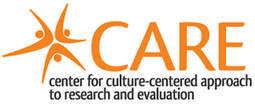Volume 15, Issue 1
2019
SPECIAL ISSUE: Indigenous Theorizing - Voices and Representation
Welcome to this special issue containing original contributions that explore Indigenous voice as a space for theorizing communication. This is the first time that a journal within the wider communication discipline has devoted a special issue to Indigenous communication theory and research, and we received an influx of submissions for this special issue. The peer-review process was rigorous - most papers were rejected after the first stage of double-blind review. The idea of peer review, at least in terms of 'prestige' and 'quality' goes against the Indigenous philosophy of inclusiveness, so I have grappled with the competing tensions of academic convention versus not not wanting to reject work by people who come from backgrounds of exclusion and marginalization.
On a positive note, if the number of submissions is an indicator, Indigenous communication theory and research is a burgeoning area. Another sign of this growth was a panel discussion at the 105th National Communication Association (NCA) Annual Convention this year in Baltimore, which proposed for an Indigenous caucus within NCA. Furthermore, the International Communication Association (ICA) are "seeking to promote the scholarship and participation of First Nations researchers in both the conference and the association as a whole". I am looking forward to seeing how those initiatives develop but urge caution against turning Indigenous communication theory and research into a commodity within the Americentric communication oligopoly. Yes, communication also occurs and is studied, researched and taught outside of the United States.
Below are the articles for this special issue. The authors include a mix of Indigenous and non-Indigenous scholars, graduate students, and communication practitioners. Thank you to everyone who submitted work for this special issue.
Steve Elers
Editor
SPECIAL ISSUE: Indigenous Theorizing - Voices and Representation
Welcome to this special issue containing original contributions that explore Indigenous voice as a space for theorizing communication. This is the first time that a journal within the wider communication discipline has devoted a special issue to Indigenous communication theory and research, and we received an influx of submissions for this special issue. The peer-review process was rigorous - most papers were rejected after the first stage of double-blind review. The idea of peer review, at least in terms of 'prestige' and 'quality' goes against the Indigenous philosophy of inclusiveness, so I have grappled with the competing tensions of academic convention versus not not wanting to reject work by people who come from backgrounds of exclusion and marginalization.
On a positive note, if the number of submissions is an indicator, Indigenous communication theory and research is a burgeoning area. Another sign of this growth was a panel discussion at the 105th National Communication Association (NCA) Annual Convention this year in Baltimore, which proposed for an Indigenous caucus within NCA. Furthermore, the International Communication Association (ICA) are "seeking to promote the scholarship and participation of First Nations researchers in both the conference and the association as a whole". I am looking forward to seeing how those initiatives develop but urge caution against turning Indigenous communication theory and research into a commodity within the Americentric communication oligopoly. Yes, communication also occurs and is studied, researched and taught outside of the United States.
Below are the articles for this special issue. The authors include a mix of Indigenous and non-Indigenous scholars, graduate students, and communication practitioners. Thank you to everyone who submitted work for this special issue.
Steve Elers
Editor
REFEREED ARTICLES
Ua mau ke ea o ka ‘āina i ka pono: Cultural appropriation of the Hawaiian language in Hawaii Five-0
Colby Y. Miyose and Eean Grimshaw
View PDF
Power imbalance in media representation: An Aboriginal Australian public relations experience
Phyllis Sakinofsky, Avril Janks, Treena Clark and Karina Hawtrey
View PDF
The spiritual geography of landscape
Daniel G. Cooper
View PDF
Asserting an Indigenous theoretical framework in Australian public relations
Treena Clark, Nancia Guivarra, Shannan Dodson and Yatu Widders Hunt
View PDF
Eh… You Hawaiian? Examining Hawaii Five-0’s “Hawaiian”
Colby Y. Miyose and Rayna Morel
View PDF
Colby Y. Miyose and Eean Grimshaw
View PDF
Power imbalance in media representation: An Aboriginal Australian public relations experience
Phyllis Sakinofsky, Avril Janks, Treena Clark and Karina Hawtrey
View PDF
The spiritual geography of landscape
Daniel G. Cooper
View PDF
Asserting an Indigenous theoretical framework in Australian public relations
Treena Clark, Nancia Guivarra, Shannan Dodson and Yatu Widders Hunt
View PDF
Eh… You Hawaiian? Examining Hawaii Five-0’s “Hawaiian”
Colby Y. Miyose and Rayna Morel
View PDF


